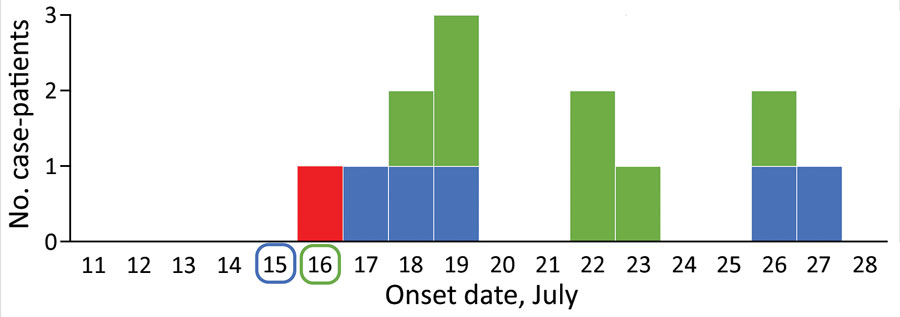Volume 27, Number 6—June 2021
Dispatch
Epidemiologic Evidence for Airborne Transmission of SARS-CoV-2 during Church Singing, Australia, 2020
Figure 1

Figure 1. Epidemiologic curve of an outbreak of infection with severe acute respiratory syndrome coronavirus 2 in a church, Australia, 2020. Red indicates symptom onset date for the index case-patient, who sang at 4 services on July 15–17; secondary case-patient symptom onset dates are color coded by date of service attendance as indicated along baseline (1 secondary case-patient attended services on July 16 and 17). The 5 case-patients with onsets of July 22–26 also had exposures to earlier outbreak case-patients in their households.
Page created: March 29, 2021
Page updated: May 18, 2021
Page reviewed: May 18, 2021
The conclusions, findings, and opinions expressed by authors contributing to this journal do not necessarily reflect the official position of the U.S. Department of Health and Human Services, the Public Health Service, the Centers for Disease Control and Prevention, or the authors' affiliated institutions. Use of trade names is for identification only and does not imply endorsement by any of the groups named above.